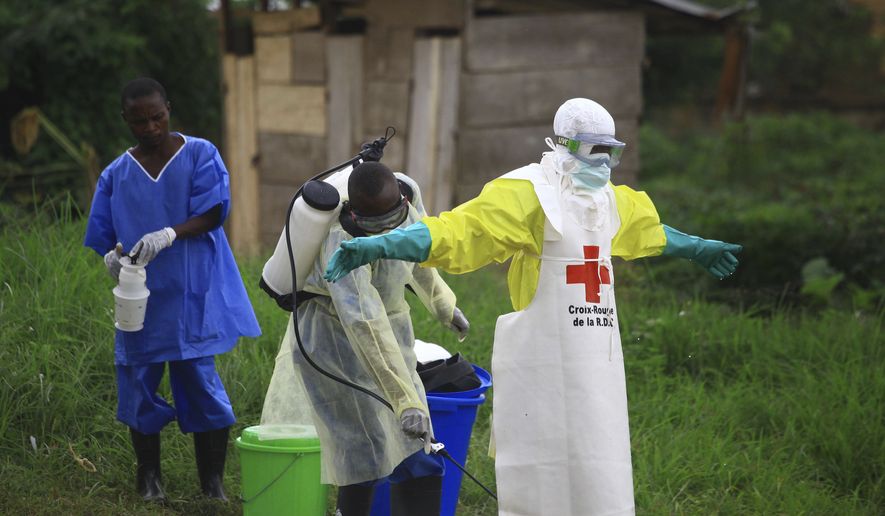The World Health Organization on Wednesday said it is “deeply concerned” about the unfolding Ebola outbreak in a war-torn part of the Democratic Republic of Congo but it is not ready to declare it a global emergency.
WHO’s Emergency Committee said it’s worried the deadly virus will spread within the DRC and to neighboring countries like Uganda, though at this point they don’t think infections will hop across the world.
“The committee remains deeply concerned by the outbreak and emphasized that response activities need to be intensified and ongoing vigilance is critical,” officials from the public health arm of the United Nations said after meeting in Geneva.
“Without this, the situation is likely to deteriorate significantly,” WHO added. “This response should be supported by the entire international community.”
The outbreak in North Kivu province has resulted in 216 confirmed or suspected cases and been linked to 139 deaths.
Security is a key concern in the mineral-rich region, where a patchwork of rebel groups frequently skirmish with government forces.
WHO said eight different attacks have occurred in Beni, a town at the heart of the Ebola response. The violence makes it difficult for teams to go out and vaccinate people or trace new cases.
Distrust of the international response is another challenge, with some people avoiding follow-up care.
WHO wants the UN Security Council to stay engaged in the response, saying it will help restore order and allow responders to regain community trust as a result.
Countries should continue to stockpile trial vaccines and seek final licensure of the shots, and areas neighboring the affected part of DRC should consider vaccinating their front-line health workers, the WHO’s Emergency Committee advised.
WHO said countries should not place restrictions on travel or commerce because of the outbreak, though it said exit screening of people leaving the affected area at airports, ports, and land crossings should continue and is “of great importance.”
Ebola is a serious, often-fatal disease that is transmitted to people from wild animals and spreads from human to human through the bodily fluids of people who exhibit symptoms.
The outbreak is the DRC’s 10th since Ebola was discovered in the late 1970s and its second this year. A major outbreak in West Africa killed more than 11,000 in 2014-2016.
Ronald Klain, who served as President Obama’s “Ebola czar” during the West Africa response, said the WHO’s decision not to declare a Public Health Emergency of International Concern doesn’t mean the situation in DRC is under control.
“It is time of the global community — especially the United States — to step up their efforts in this outbreak,” he said in a statement posted to Twitter. “This particularly falls on the Trump administration, which to its credit has provided some resources to date — but should and must do more.”
He said global partners need to secure the area, so on-the-ground experts from the U.S. Centers for Disease Control and Prevention aren’t pushed to the sidelines.
He also said the U.S. Agency for International Development should offer more aid.
• Tom Howell Jr. can be reached at thowell@washingtontimes.com.




Please read our comment policy before commenting.